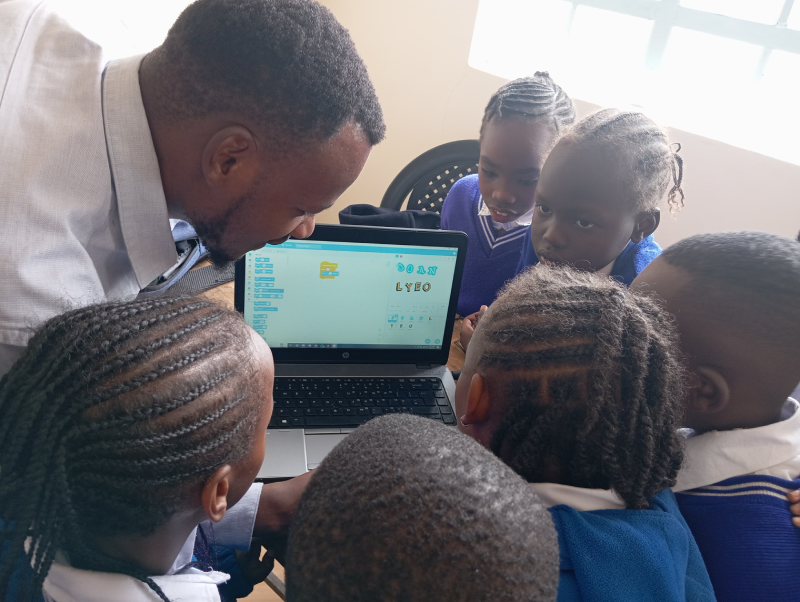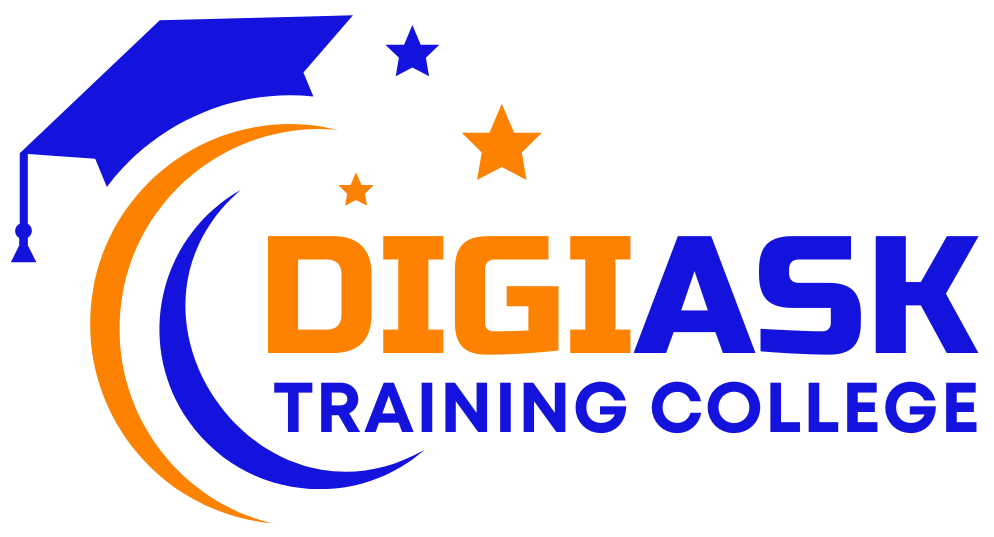The digital revolution has transformed how we live, work, and learn. As parents and educators in Kenya, we often wonder when the right time is to introduce our children to coding skills. This isn’t just about creating future software engineers—it’s about equipping the next generation with critical thinking abilities and problem-solving skills that will serve them well regardless of their career paths. Now begs the question, what age should kids start coding?
At Digiask Training College, we believe coding education can begin earlier than many people think, with age-appropriate approaches that grow with your child. Let’s explore what age should kids start coding? And how to introduce coding to young learners in Kenya.

The Right Age to Begin Coding
Rather than focusing on a single “perfect” age, we should consider coding education as a continuum that adapts to children’s developmental stages:
Ages 4-6: Playful Foundations
For our youngest learners, coding starts without screens! At this age, children benefit from:
- Unplugged coding activities using physical objects and movements
- Learning basic sequencing through storytelling and daily routines
- Simple coding toys and board games that teach logical thinking
- Activities focusing on patterns, sorting, and following step-by-step instructions
In Kenya, we’ve seen tremendous success with this approach at Precious Gift Academy in Nairobi, where even their pre-primary students engage in “coding play” sessions. These young learners use colorful blocks to create simple sequences and solve maze challenges, building the cognitive foundations for future coding skills—all without touching a computer!
Ages 7-10: Visual Programming Beginnings
This age range represents an ideal starting point for most children to begin formal coding instruction:
- Visual block-based programming environments like Scratch
- Simple game creation and animation projects
- Introduction to loops, conditionals, and events
- Collaborative coding activities with peers
Premier Academy in Parklands has integrated coding into their primary curriculum with remarkable results. Their students create interactive stories and simple games using Scratch, often incorporating Kenyan cultural elements and local stories. Teachers report improvements not just in technology skills but also in mathematics performance and general problem-solving abilities.
Ages 11-14: Expanding Coding Horizons
As children grow, their coding education can evolve to include:
- Introduction to text-based programming languages like Python
- More complex projects including apps and games
- Physical computing with programmable devices
- Web development fundamentals
Ages 15+: Specialized Development
Older teens can dive deeper into:
- Advanced programming concepts and languages
- Specialized areas like mobile app development or data science
- Real-world projects solving community challenges
- Preparation for technology-related higher education or careers
Benefits of Early Coding Education for Kenyan Children
When implemented appropriately, coding education offers numerous advantages:
Critical Thinking and Problem-Solving Skills
Coding teaches children to break down complex problems into smaller, manageable parts—a skill valuable in all areas of life and learning. When a program doesn’t work as expected, children learn to systematically identify and fix errors, building resilience and analytical thinking.
Creativity and Self-Expression
Far from being purely technical, coding offers creative outlets for children to express themselves. They can create stories, games, animations, and art that reflect their interests and cultural backgrounds.
Future-Ready Skills
While not every child will become a professional programmer, coding literacy provides valuable skills for almost any future career in our increasingly digital world. For Kenyan youth particularly, these skills can open doors to the growing technology sector both locally and globally.
Mathematical Concept Application
Coding provides a practical context for applying mathematical concepts like coordinates, variables, and logic, making abstract ideas concrete and purposeful.

How Digiask Training College Supports Young Coders in Kenya
At Digiask Training College, we offer age-appropriate coding programs designed specifically for Kenyan children:
Holiday Coding Camps
Our intensive, fun-filled camps provide immersive coding experiences during school breaks, letting children explore programming concepts through engaging projects in a collaborative environment.
After-School Programs
Weekly coding sessions that complement regular school curriculum, offered at convenient locations throughout Kenya.
School Integration Support
We partner with schools like Precious Gift Academy and Premier Academy to integrate coding education into their existing curriculum, providing teacher training, learning resources, and technical support.
Parent-Child Coding Workshops
Special sessions where parents and children learn together, helping families support coding education at home.
Getting Started with Coding at Home
While formal classes are valuable, you can begin introducing coding concepts at home:
Free Resources for Kenyan Families
- Scratch (scratch.mit.edu): A free visual programming platform perfect for beginners
- Code.org: Offers hour-of-code activities with popular themes
- Google CS First: Free coding clubs curriculum with African-themed content
- Offline coding games that work well even with limited internet connectivity
Creating a Coding-Friendly Environment
- Set aside regular time for coding exploration
- Celebrate the process, not just the final product
- Ask open-ended questions when children encounter challenges
- Connect coding to your child’s existing interests and local context
Success Stories from Kenyan Schools
Precious Gift Academy’s Coding Journey
When Precious Gift Academy introduced coding for children as young as 5 years old, many parents were skeptical. However, the school’s playful, developmentally appropriate approach quickly showed results. Young students used “coding blocks” to create simple programs for robot toys, learning sequencing and logical thinking through hands-on play.
“We’ve noticed remarkable improvements in children’s attention spans and problem-solving abilities,” shares Head Teacher. “Even more impressive is how they apply these thinking skills to other subjects. A child who can debug a simple program learns persistence that transfers to reading, mathematics, and beyond.”
Premier Academy’s Technology Integration
Premier Academy took a whole-school approach to coding education three years ago. Working with Digiask Training College, they’ve developed a progressive curriculum that grows with their students from Pre School to Grade 8.
“Our students don’t just consume technology—they create with it,” explains ICT Coordinator. “They’ve designed games teaching Kiswahili vocabulary, animations explaining local conservation issues, and even simple apps to help their parents track household budgets. The pride they take in creating solutions relevant to their community is extraordinary.”

Start Where Your Child Is Ready
The best age for your child to start coding depends on their individual development, interests, and access to resources. Rather than focusing on a specific age, look for signs of readiness and curiosity.
At Digiask Training College, we believe every Kenyan child deserves access to quality coding education that prepares them for future success. Whether your child is a preschooler ready for unplugged coding games or a teenager eager to build their first app, we have programs designed to meet them where they are and grow with them.
Coding isn’t just about computers—it’s about thinking, creating, and problem-solving. These are skills that benefit children at any age, opening doors to possibilities we can only imagine.
Contact Information:
Digiask Training College
Phone: +254 7 16 745 127
Email: info@digiaskcollege.com
Website: www.digiaskcollege.ac.ke
Location: Kenya House Complex 5th Floor
Empowering Kenya’s digital creators, one child at a time.
